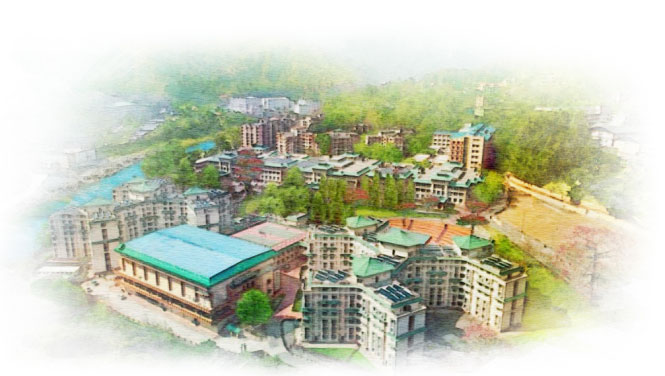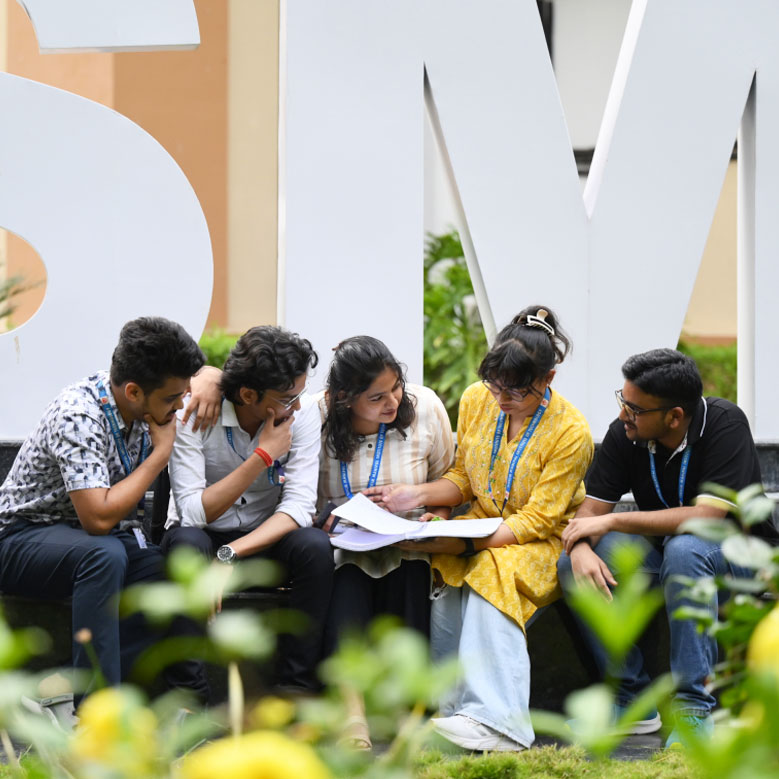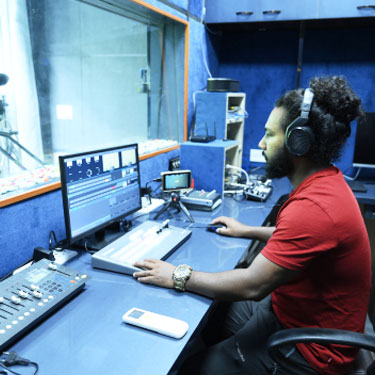DATES TO REMEMBER :
15th March 2026: Last date to apply for admissions
01st August 2026: Course commencement date
Overview
The Department of Computer Science and Engineering offers three different courses namely; Bachelor of Technology in Computer Science and Engineering, Master of Technology in Computer Science and Engineering and PhD. With the AICTE sanctioned intake of 180 for Bachelor of Technology in Computer Science and Engineering and 18 for Master of Technology in Computer Science and Engineering course the Department of Computer Science and Engineering is home to over 600 students.

Crafting success
stories with excellence
in education.
ELIGIBILITY
- Passed 10+2/equivalent with 45% marks (40% in Reserved Category) in Physics & Maths (Mandatory) and any one from the following: Computer Science / Electronics / Information Technology / Biology / Chemistry /Informatics Practices / Biotechnology / Technical Vocational subject / Engineering Graphics / Business Studies / Entrepreneurship.p.
- B.Tech. [L.E.] - Candidate with a diploma in the appropriate branch of engineering awarded by a State Board of Technical Education, and with at least 50% (45% for SC/ST/OBC) in aggregate in diploma is also eligible for admission to B Tech Curriculum.
ENTRANCE EXAMINATION
a) General Category, Defence, North East, Gorkha Territorial Administration (GTA) and Paramilitary Force Categories:
- The candidates will have to appear for the JEE to be conducted by the CBSE.
- Cut-off JEE Main Score in All India JEE applicable to all reserved categories will be displayed on our website www.smu.edu.in.
b) Sikkim Category:
- Candidates should apply to the Director, Technical Education, HRDD and Government of Sikkim. They should appear in the entrance test conducted by the Government, the details of which will be notified by the Director, HRDD, Technical Education.
c) MET Category:
- Manipal Entrance Test (MET) conducted by MAHE (Manipal Academy of Higher Education)
d) SMIT Online Test::
- Candidates seeking admission under this category will have to appear for online test conducted by SMU.
Program FEES
| Fee | Fees For General (Gen), North East (NE), Defence (Def), ParaMilitary Force (PMF) ,GTA & SAARC | Fees For Sikkim Quota Students | Fees For Non SAARC | Fee Structure of NRI / Foreign Category |
| Caution Deposit | 10,000 | 10,000 | 10,000 | 10,000 |
| Exam Fees (One time per year) | 3,500 | 3,500 | 5,000 | 3,500 |
| Lumpsum | 3,60,400 | 2,15,600 | 4,50,500 | $7600 |
| PER YEAR | Fees For General Category Students | Fees For Sikkim Quota Students | Fees For Non SAARC | Fee Structure ofr NRI / Foreign Category |
| First Year I Installment | 1,87,200 | 1,11,800 | 2,34,300 | $3900 |
| First Year II Installment | 1,87,200 | 1,11,800 | 2,34,300 | $3900 |
| Second Year I Installment | 1,87,200 | 1,11,800 | 2,34,300 | $3900 |
| Second Year II Installment | 1,87,200 | 1,11,800 | 2,34,300 | $3900 |
| Third Year I Installment | 1,87,200 | 1,11,800 | 2,34,300 | $3900 |
| Third Year II Installment | 1,87,200 | 1,11,800 | 2,34,300 | $3900 |
| Fourth Year I Installment | 1,87,200 | 1,11,800 | 2,34,300 | $3900 |
| Fourth Year II Installment | 1,87,200 | 1,11,800 | 2,34,300 | $3900 |
- Engineering knowledge: Apply the knowledge of mathematics, science, engineering
fundamentals, and an engineering specialization to the solution of complex
engineering problems.
- Problem analysis: Identify, formulate, review research literature, and analyze
complex engineering problems reaching substantiated conclusions using first
principles of mathematics, natural sciences, and engineering sciences.
- Design/development of solutions: Design solutions for complex engineering
problems and design system components or processes that meet the specified needs
with appropriate consideration for the public health and safety, and the
cultural, societal, and environmental considerations.
- Conduct investigations of complex problems: Use research-based knowledge and
research methods including design of experiments, analysis and interpretation of
data, and synthesis of the information to provide valid conclusions.
- Modern tool usage: Create, select, and apply appropriate techniques, resources,
and modern engineering and IT tools including prediction and modeling to complex
engineering activities with an understanding of the limitations.
- The engineer and society: Apply reasoning informed by the contextual knowledge
to assess societal, health, safety, legal and cultural issues and the consequent
responsibilities relevant to the professional engineering practice.
- Environment and sustainability: Understand the impact of the professional
engineering solutions in societal and environmental contexts, and demonstrate
the knowledge of, and need for sustainable development.
- Ethics: Apply ethical principles and commit to professional ethics and responsibilities and norms of the engineering practice.
- Individual and team work: Function effectively as an individual, and as a member
or leader in diverse teams, and in multidisciplinary settings.
- Communication: Communicate effectively on complex engineering activities with
the engineering community and with society at large, such as, being able to
comprehend and write effective reports and design documentation, make effective
presentations, and give and receive clear instructions.
- Project management and finance: Demonstrate knowledge and understanding of the engineering and management principles and apply these to one’s own work, as a member and leader in a team, to manage projects and in multidisciplinary environments.
- Life-long learning: Recognize the need for, and have the preparation and ability to engage in independent and life-long learning in the broadest context of technological change.
- Click Here for B.Tech CSE Syllabus (for graduating batch 2024)
- Click Here for B.Tech CSE Syllabus (for batches admitted in 2024 and thereafter)
- Click Here for Course Outcomes
The rigorous training that the students undergo makes them worthy professionals with mental agility and technical skill sets sought after by the IT Industry. No wonder, the students of Computer Science and Engineering bag the most number of on-campus placement offers and our glittering alumni are working with organizations like Microsoft, Amazon, Google, Oracle, Dell, IBM, ANZ, JP Morgan Chase, CISCO, eBay, American Express to name a few.
- Engineering Knowledge: Our graduates will be capable of applying their engineering knowledge to succeed in whichever field they want to pursue keeping abreast of the ever-changing technology.
- Entrepreneurship: Our graduates should be able to set up various entrepreneurship ventures which in turn facilitate employability.
- Research Upliftment: Our graduates will apply the best practices of computation based on mathematics and science to address customized projects and ensure productivity in research.
- Societal and Ethical Responsibility: Our graduates will showcase a sense of societal and ethical responsibility in their professional endeavors and should be able to make an informed choice for the furtherance of the society.
- Cognitive Communication: Our graduates should be able to exhibit impromptu and impeccable communication skills with the potential of working as a team with cognitive empathy.
Honours Course (from 2022 batch onwards)
- Cyber Security
- Data Science
- Artificial Intelligence
Minor Specialisation (from 2022 batch onwards)
- Cyber Security
- Data Science
- Artificial Intelligence
B.Tech Minor Specialization
- Artificial Intelligence
- Data Science
- Internet of Things
- Cyber Security
Entrepreneurship
Development cell (EDC)
Helps students in exploring entrepreneurial opportunities.

Students are encouraged to engage in practical's making them industry ready

World-class campus in a tranquil environment

Best-in-class laboratories and workshops for practical exposure


